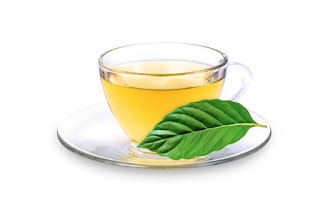The most commonly consumed drug in the world is alcohol. Some people swear they will never drink again after suffering from hangovers.
The most common symptoms of a hangover are headaches, fatigue, dizziness, and dizziness. Folkloric remedies can be used to treat them. You may have heard that lemon water and cheeseburgers can ease hangovers.
Scientists claim that most of these home remedies for hangovers are ineffective. Some hangover sufferers have had success with kratom, a Southeast Asian plant. Research suggests that kratom could have some merit for those suffering from hangovers, unlike folk remedies.
How can Kratom help with hangovers?
Hangovers are more often caused by inflammation, poor sleep, or other factors than dehydration and electrolyte imbalances. (Penning and colleagues, 2010). As such, most home remedies don't work. However, if you feel the need to take an aspirin, naproxen or ibuprofen after a night of drinking then you may be right.
Research suggests that nonsteroidal anti-inflammatory drugs (NSAIDs), may be able to ease headaches caused by hangovers. Swift and Davidson 1998, pg 59). In fact, one study showed that tolfenamic, an NSAID like aspirin, was more effective at reducing the symptoms of hangovers than a placebo. (Kaivola et al., 1983)
Kratom, like aspirin and ibuprofen, has anti-inflammatory properties due to the natural compounds in its leaves. (Mossadeq and colleagues, 2009, pg 383) Researchers also confirm that M. speciosa (kratom), can be used medically as a painkiller. (Fluyau & Revadigar 2017,).
Two kratom alkaloids, mitragynine (7-hydroxymitragynine) and 7-hydroxymitragynine (7-hydroxymitragynine), are at the heart of Kratom’s pain-relieving and anti-inflammatory properties. Both alkaloids can be consumed to produce powerful pain-relieving effects. (Takayama 2004 pg 922 & 925) Kratom may be helpful in relieving the pain and inflammation that is associated with hangovers.
The Downsides of Kratom to Help Hangovers
While kratom may help with hangovers, it is not risk-free to use the plant while you are hangover.
Dehydration
Although dehydration may not be the cause of hangovers in their entirety, it can make recovery more difficult. Hangover discomfort can be made worse by dehydration, which can lead to headaches and irritability.
Kratom can dehydrate, especially if taken in large doses or for long periods. If you are actively dehydrated, it could prove counterproductive to use kratom to treat your hangover.
It is possible to avoid dehydration when using kratom for hangovers by staying hydrated and taking a low dose of kratom (no more that 2.5-5g).
Nausea
Kratom consumption can cause nausea, which is a common side effect of alcohol. (Cinosi and al., 2015 pg 6). If you already have nausea, it is best to not use kratom for your hangover.
Fortunately, most kratom-related nausea is caused by high doses (5g+). You are less likely to feel nausea if you take 1-5g.
However, you should assess how you react to kratom, especially if it is your first time trying it.
Dizziness
Although dizziness is more common than other symptoms of a hangover, it can still be very unpleasant. It's best to avoid kratom if you experience dizziness due to a hangover. Although most people don't feel dizzy after consuming kratom, high doses (5g+) can cause dizziness. (Grundmann, 2017, pg 67)
Which Kratom is best for reducing hangovers?
There are many kratom strains on the market, and there are many variations of kratom. You might find that some strains of kratom are more beneficial than others, depending on what you prefer.
Red kratom strains are the most pain-relieving and could be especially helpful for those suffering from hangovers. Red strains can cause tiredness and sedation. Red kratom can cause fatigue and sedation, so if you take a red kratom for a hangover, it could make your day longer.
Contrary to red strains, green and white strains can be more energetic than red. A white or green strain might help with a hangover. However, a white or green strain of kratom may not provide the same pain relief as a red strain.
Hangovers can be subjective. Kratom effects are no different. It may take some experimentation to find the right combination for you.
Conclusion
Kratom could be effective in relieving hangover symptoms due to its pain-relieving properties and anti-inflammatory qualities. Researchers have not yet studied Kratom’s effects on hangovers. Although some users claim that the plant helps them feel better after drinking, your results could be different.

Comments
Post a Comment